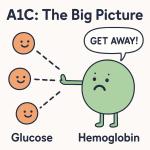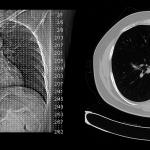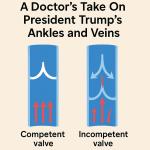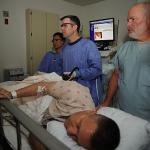Once you reach a certain age, people you know start checking out faster than at the front desk at a Ramada Inn. It colors your perspective.
Disease
With rare exceptions, the chemical reactions that take place in our bodies are catalyzed by enzymes.
Join Cameron English, Dr. Chuck Dinerstein and Dr. Josh Bloom on Episode 129 of the Science Dispatch podcast as they discuss:
A few days ago, this email came across my desk.
Join Cameron English and Dr. Chuck Dinerstein on Episode 123 of the Science Dispatch podcast as they discuss:
It is not every day that the President has a medical condition for which I have both training and experience, so now is my chance to dish.
Join Cameron English and Dr. Chuck Dinerstein on Episode 121 of the Science Dispatch podcast as they discuss:
“These decisions reflect a broader, emerging worldview promoted by what I call ‘Germ Deniers’ — individuals and groups who question or outright reject the established scientific understanding of how much microorganisms cause dise
Artificial intelligence (AI) is all the rage in many aspects of our lives, from composing students' essays and manufacturing cars to designing new fashions, and the number of its applications is growing by the day.












